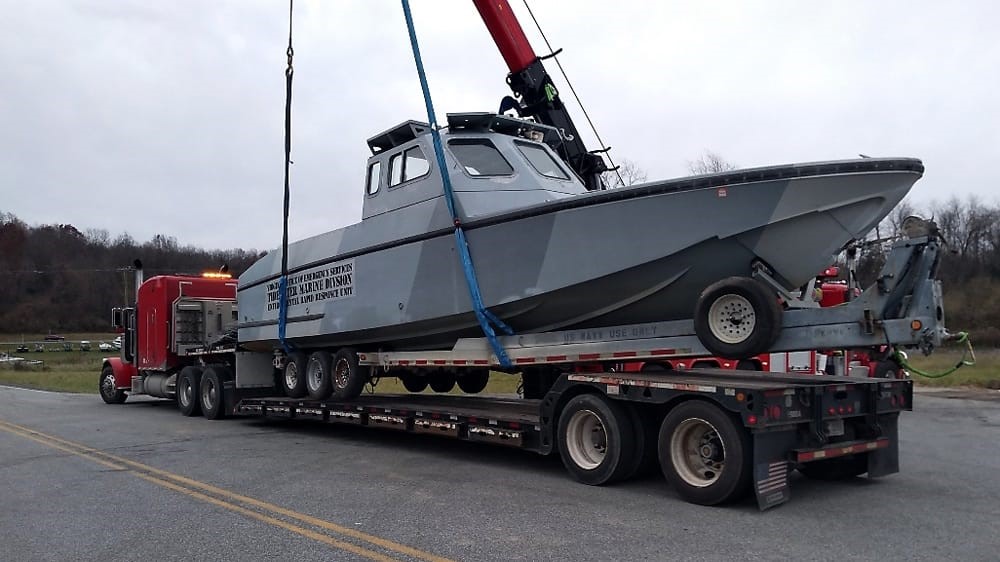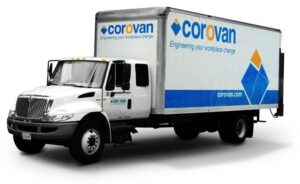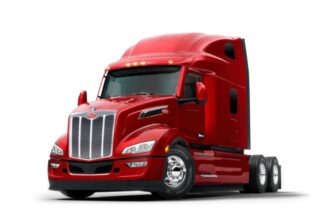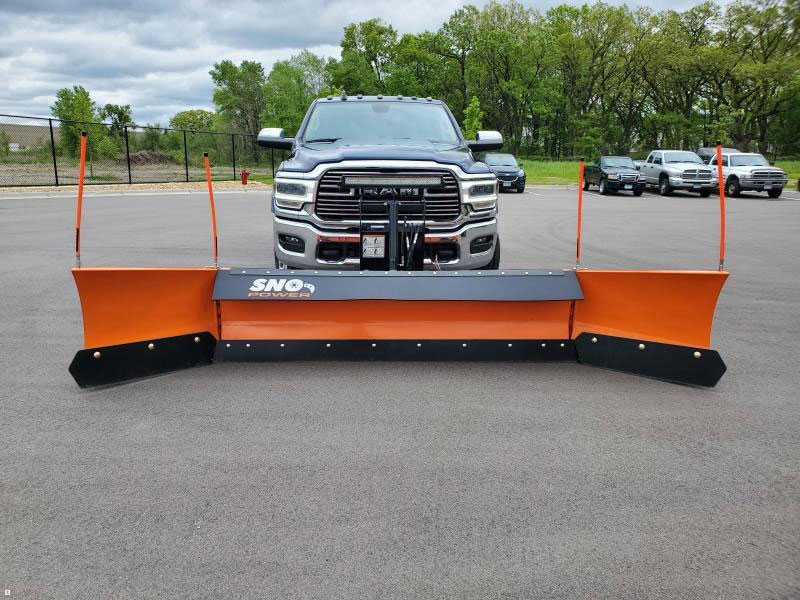Table of Contents
Introduction
The allure of the open water, the freedom to explore picturesque coastlines, and the thrill of adventure are synonymous with the boating lifestyle. For boat owners, the ability to take their vessels to various waterways is a cherished freedom. However, At some point, someone needs to transport these boats from one location to another, and this is where boat haulers step in.
Do you love boats? Are you good at driving and towing? If so, starting a boat hauler business can be a rewarding endeavor. As a boat hauler, you transport boats from one location to another, either locally or long-distance. This can be a great business opportunity if you live in an area with many boaters.
Explore the steps you require to launch a successful boat hauler business.
How to Start a Boat Hauler Business
- Research and Market Analysis
- Business Planning and Legal Considerations
- Acquiring the Right Equipment
- Building a Reputation and Marketing
- Safety and Training
- Pricing and Contracts
- Networking and Partnerships
Recap
1. Research and Market Analysis
To start a boat hauler business, it’s crucial to conduct thorough research and market analysis. Assess the local and regional demand for boat hauling, considering factors like boat owner demographics, vessel types, and seasonal variations in boating activity.
Identify and evaluate your competitors in the boat hauling industry, understanding their strengths, weaknesses, and areas where you can differentiate your services.
Create customer personas to grasp the demographics and unique needs of your target clientele, helping tailor your services and marketing efforts accordingly.
Calculate your operational costs and determine competitive pricing that aligns with your target market, considering whether you want to position your business as premium, budget-friendly, or somewhere in between.
Stay informed about technological advancements, environmental concerns, and evolving customer preferences in the boat hauling industry to adapt and potentially offer innovative solutions that cater to changing market demands.
2. Business Planning and Legal Considerations
To establish a boat hauler business, it is imperative to have a well-structured business plan in place. Outline your business goals, target market, pricing structure, and financial projections. Additionally, consider the legal aspects of your boat hauler business. Register your business, obtain the necessary licenses and permits, and explore insurance options to protect yourself and your clients’ valuable assets.
Your business plan should include a comprehensive risk assessment, detailing potential challenges like adverse weather conditions, road accidents, or equipment failures, and outlining contingency plans to address these scenarios.
Furthermore, as part of your legal considerations, it’s crucial to draft clear and robust contracts that not only protect your interests but also establish transparency and trust with your clients.
These contracts should clearly outline your responsibilities, liability limitations, and dispute resolution procedures, providing a legal framework that safeguards both your business and your client’s assets. By prioritizing risk management and legal protection, you can build a resilient boat hauler business that thrives even in challenging situations.
3. Acquiring the Right Equipment
To begin a boat hauler business, having the right equipment is of utmost importance. You need a suitable vehicle and trailer to transport boats safely.
When acquiring equipment for your boat hauler business, prioritize safety and versatility. Look for vehicles and trailers that are not only capable of transporting a range of boat sizes and types but also come equipped with advanced safety features such as anti-lock braking systems (ABS) and proper lighting for night travel.
Invest in quality tie-downs, securing systems, and padding materials to ensure the utmost protection for the boats you transport. Regular maintenance and inspections of your equipment are equally critical. A well-maintained fleet not only enhances safety but also extends the lifespan of your assets, reducing long-term operational costs and ensuring reliability in serving your customers. By focusing on safety and versatility while maintaining your equipment, you establish trust with your clients and position your boat hauler business for long-term success.
4. Building a Reputation and Marketing
To commence a boat hauler business, establishing a favorable reputation is fundamental. Provide excellent customer service, handle boats with care, and communicate effectively with your clients. Word-of-mouth recommendations can be a powerful marketing tool in this industry. Additionally, create an online presence through a professional website and social media to reach a wider audience. Consider using online advertising and networking within boating communities.
5. Safety and Training
To launch a boat hauler business, prioritizing safety is paramount. Ensure that you and your employees receive proper training in boat transportation and safety protocols. Invest in safety equipment and follow industry standards and guidelines to minimize risks during transport.
Safety is an ongoing commitment in the boat hauler business. Beyond initial training, establish a culture of continuous improvement and learning among your team. Regularly update your employees on the latest safety protocols and best practices in boat transportation.
Likewise, create comprehensive emergency response plans for various scenarios, such as accidents, inclement weather, or equipment failures. Equip your team with the knowledge and tools needed to handle unexpected situations swiftly and professionally.
By prioritizing safety, ongoing training, and preparedness, you not only protect your assets and reputation but also build strong relationships with your clients, who value the assurance that their cherished boats are in capable and safe hands.
>>>PRO TIPS: Boat Hauler Business Accessories you Need to Succeed
6. Pricing and Contracts
To activate a boat hauler business, ensuring openness in pricing and contractual agreements is crucial for establishing trust and maintaining enduring client connections. Consider offering clear, itemized pricing that allows clients to understand the costs associated with their specific transportation needs. Engage with your clients in open communication to discuss pricing options, ensuring that they feel valued and informed. When it comes to contracts, flexibility can be a selling point. Tailor contracts to accommodate unique client requirements, whether it’s a one-time transport or a long-term partnership. By prioritizing transparency and flexibility, you not only foster goodwill but also position your boat hauler business as a reliable and customer-centric service provider in the competitive market.
7. Networking and Partnerships
To initiate a boat hauler business, cultivate connections with marinas, boat dealerships, and other enterprises within the boating industry. Collaborating with these entities can provide you with a steady stream of clients and opportunities for growth. Networking can also help you stay updated on industry trends and innovations.
Beyond traditional networking, consider actively participating in the boating community and industry events. Attend boat shows, exhibitions, and local boating club gatherings to meet boat owners and enthusiasts directly.
Engaging in community events and sponsoring relevant activities can help solidify your presence as a trusted boat hauler. Moreover, join industry associations or forums to stay connected with the latest trends, technologies, and regulations.
Collaborate with these organizations to contribute your expertise and gain insights from fellow professionals. By immersing yourself in the boating community and the broader industry, you not only broaden your business network but also position yourself as a knowledgeable and supportive partner for boat owners and related businesses alike.
Recap
Starting a boat hauler business involves several essential steps. First, conduct thorough market research to understand demand, competition, and your target audience’s needs. Next, create a robust business plan outlining goals, pricing strategies, and legal considerations such as permits and insurance.
Acquire appropriate and well-maintained equipment with a focus on safety features. Prioritize building a reputation through excellent customer service, effective communication, and online presence while networking within boating communities. Safety and ongoing training are vital, with a strong emphasis on emergency preparedness.
Offer transparent pricing and flexible contracts to build trust, and establish partnerships within the boating industry to expand your client base and stay current with industry trends. By following these steps, you can launch a successful boat hauler business that provides reliable, safe, and customer-centric services to boat owners.



















